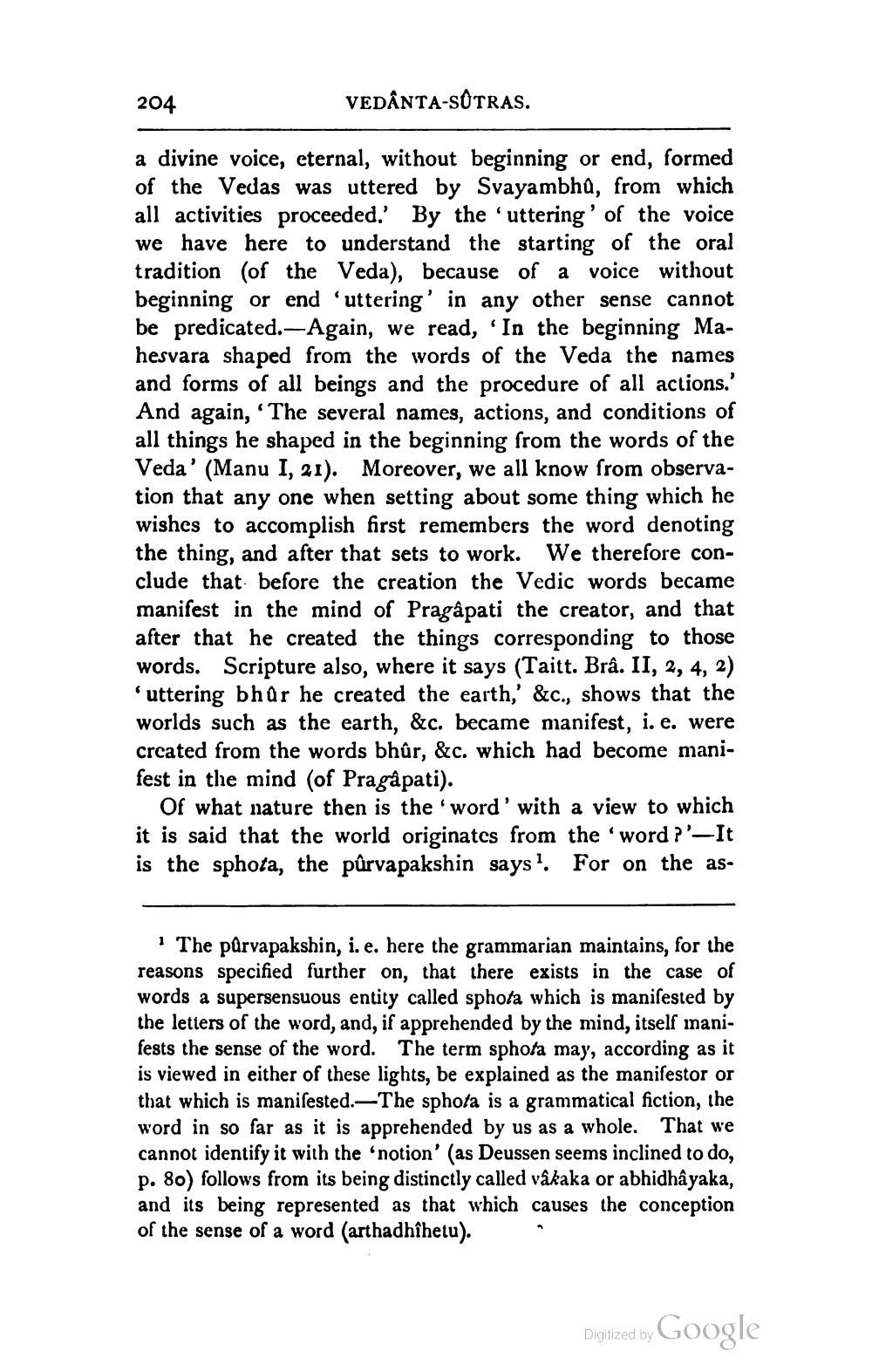________________
204
VEDANTA-SOTRAS.
a divine voice, eternal, without beginning or end, formed of the Vedas was uttered by Svayambha, from which all activities proceeded.' By the uttering' of the voice we have here to understand the starting of the oral tradition (of the Veda), because of a voice without beginning or end ‘uttering' in any other sense cannot be predicated. Again, we read, 'In the beginning Mahesvara shaped from the words of the Veda the names and forms of all beings and the procedure of all actions.' And again, ‘The several names, actions, and conditions of all things he shaped in the beginning from the words of the Veda' (Manu I, 21). Moreover, we all know from observation that any one when setting about some thing which he wishes to accomplish first remembers the word denoting the thing, and after that sets to work. We therefore conclude that before the creation the Vedic words became manifest in the mind of Pragâpati the creator, and that after that he created the things corresponding to those words. Scripture also, where it says (Taitt. Brâ. II, 2, 4, 2) ‘uttering bhûr he created the earth,' &c., shows that the worlds such as the earth, &c. became manifest, i. e. were created from the words bhûr, &c. which had become manifest in the mind (of Pra gåpati).
Of what nature then is the word ' with a view to which it is said that the world originates from the word ?'-It is the sphota, the pûrvapakshin says'. For on the as
1 The pūrvapakshin, i.e. here the grammarian maintains, for the reasons specified further on, that there exists in the case of words a supersensuous entity called sphota which is manifested by the letters of the word, and, if apprehended by the mind, itself manifests the sense of the word. The term sphota may, according as it is viewed in either of these lights, be explained as the manifestor or that which is manifested. The sphota is a grammatical fiction, the word in so far as it is apprehended by us as a whole. That we cannot identify it with the notion' (as Deussen seems inclined to do, p. 80) follows from its being distinctly called vakaka or abhidhayaka, and its being represented as that which causes the conception of the sense of a word (arthadhîhetu).
Digitized by
Digized by Google




